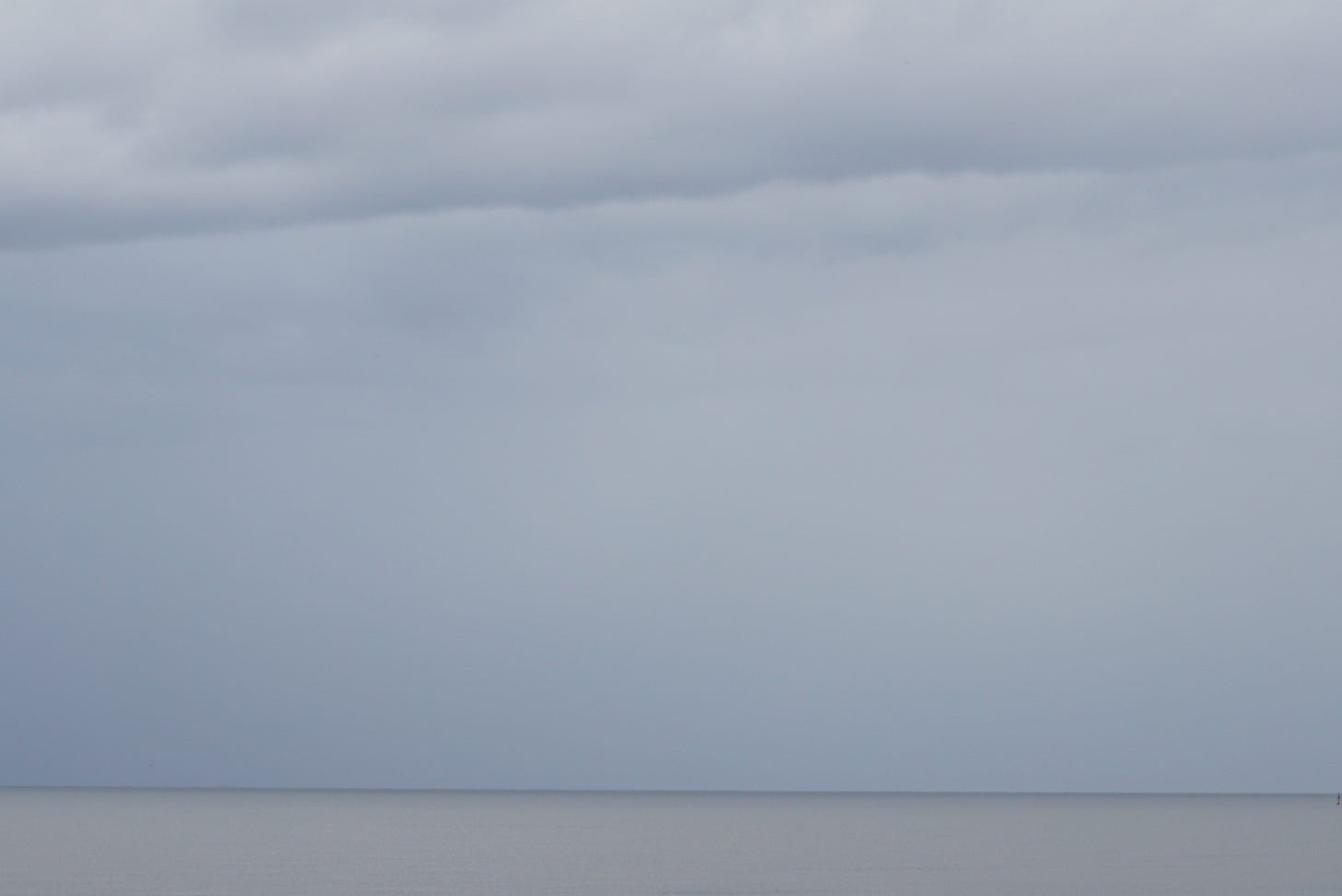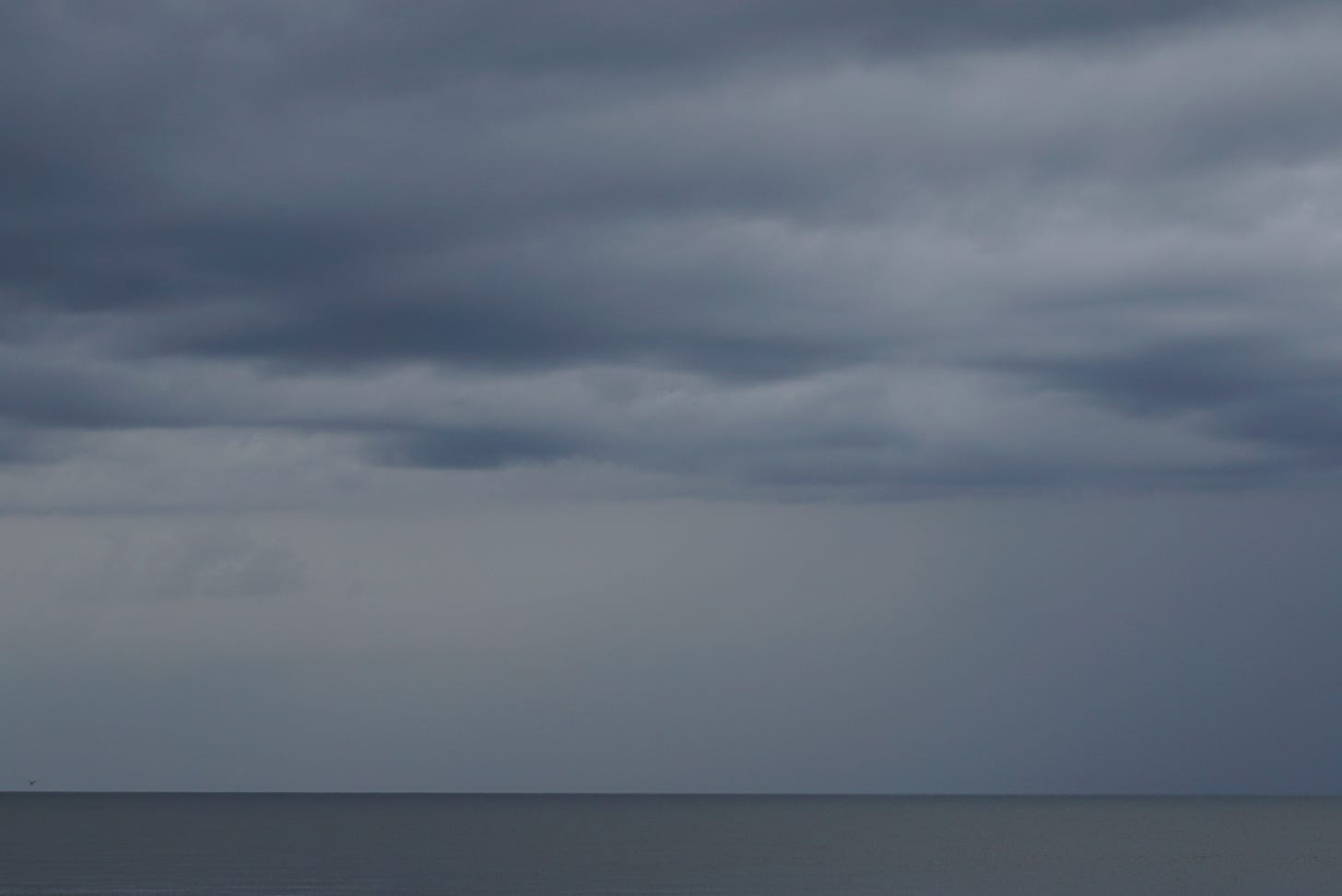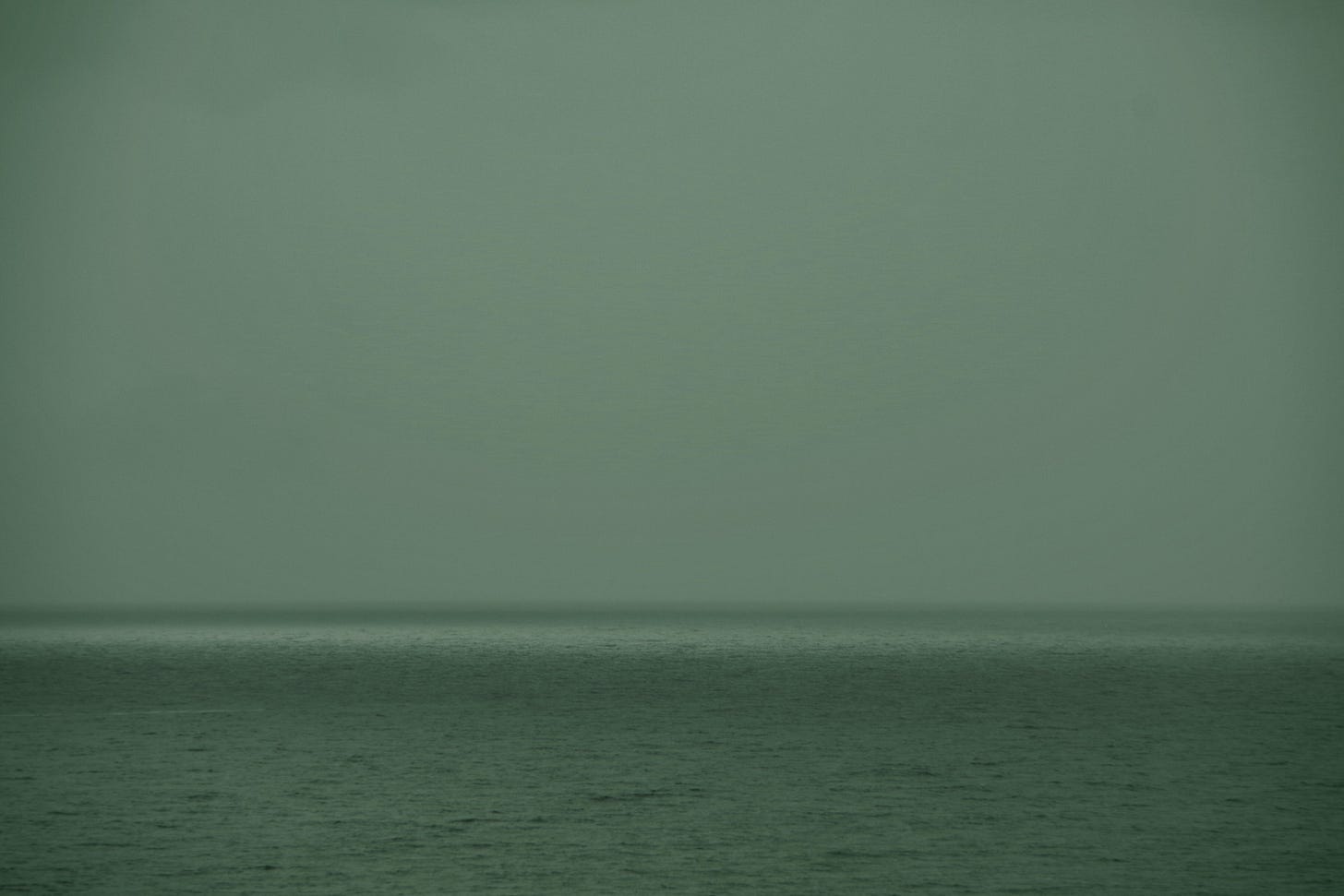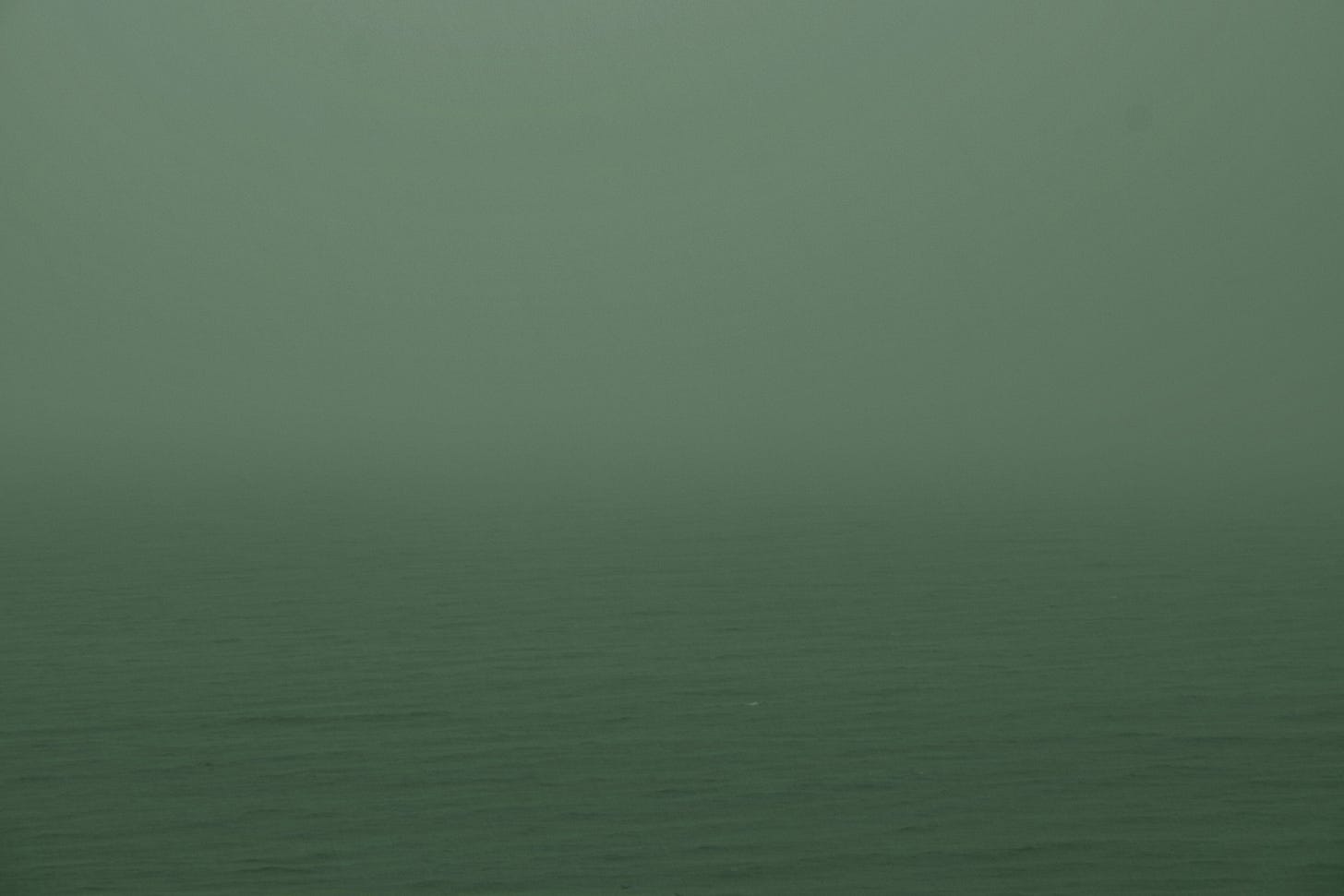Power, Brutality and Universal Values
Power does appear to lead the list of universal values. But, worse, people can be conditioned to value brutality.
I am going to take up some very heavy content in this post.
* * *
In the opening to War before Civilization (Oxford University Press 1996), Lawrence Keeley talks about an experience as a graduate student. He and his people were excavating an iron-age site somewhere in the British Isles. They found a trench filled with skeletons. Arrowheads were lodged in the rib cages of some of those skeletons. Some number of skulls were missing.
The sediment around the site featured a thick layer of ash. Arrowheads were concentrated at selected areas of the site. What happened here?
He and his people went into the excavation project with the idea that this site had some type of religious significance. The pre-historical people who had occupied the site would have been uncorrupted with post-historical Western values. They would have conformed to something approaching Rousseau’s Noble Savage, surely.
Keeley and his team dutifully mapped out and documented the artifacts, and, when their work was done, they left the site with their understanding unperturbed that those same artifacts pertained to religious rituals of profound significance. Sorting out that significance remained an outstanding project. If only the artifacts could be made to reveal their secrets.
Looking back on the project, Keeley couldn’t help but start feeling perturbed. Eventually, he couldn’t help but be stunned with the fact that he and his people had been so caught up in the thrall of the anti-Western myth of the Noble Savage that they could not recognize the site for what it was: It was the site of a massacre in which attackers managed to annihilate an entire community. The defenders may have put up a stout defense, but the attackers ultimately overwhelmed them. They managed to storm through the gates (where the arrowheads were concentrated) and then burned the settlement to the ground and killed everybody. So much for Nobel Savages living in harmony with each other in a pre-historical, pre-commercial, pre-civilizational Paradise. It was all delusion driven by faith in the pre-determined conclusion: West Bad; Everything Else Good.
It would be nice to interview these iron-age peoples: What was that all about? But Keeley does the next best thing and surveys evidence from people who managed to observe and interview other peoples. Missionaries show up prominently in the record, and those who survived their missions had some tough tales to tell. “For example, an early missionary in New Zealand heard a Maori warrior taunting the preserved head of an enemy chief in the following fashion:”
You wanted to run away, did you? but my meri [war club] overtook you: and after you were cooked, you made food for my mouth. And where is your father? He is cooked:--and where is your brother? He is eaten:--and where is your wife? There she sits, a wife for me:--and where are you children? There they are, with loads on their back, carrying food, as my slaves. (Keeley, p. 100)
Steven Pinker, crediting Keeley, reproduces this same passage on page 55 of his own book The Better Angels of Our Nature: A History of Violence and Humanity (Penguin Books, 2011). That same page features an even more horrifying vignette. “Robert Nasruk Cleveland, an Iñupiaq Inuit, provided this reminiscence from 1965 …” Which I will not recount. But I note that there are other accounts in most of the books cited here which exceed the brutality of the vignette recounted above.
War-and-rivalry is one thing to puzzle over. The brutality—the will to impose complete domination and utter humiliation—that might strike one as a greater puzzle. People had to sit down and engage their creative energies into coming up with ways to victimize others. But, to what purpose?
One purpose might be simply to pacify others by way of sheer terror. Central Asian peoples, for example, had periodically stormed out of the Steppes and annihilated whole communities all as a way of pacifying whole societies. But, once the deed was done, a peace would settle on the land. That’s why Marco Polo and his uncles could walk, unmolested, all the way from the Genoese port of Caffa on the Crimean peninsula to Kublai Khan’s China in the 1270’s. The Mongols had already imposed their Pax Mongolica by doing things like leveling Kiev, annihilating the population of Baghdad, and taking away all of the women from various communities. After that, everything was great! The Mongols ruled over a “multicultural” empire, some observers suggest. Some empires are not so bad after you get over the inexorable dislocation of the start-up phase. Move fast and break things.
Another purpose might be to encourage combatants to fight to the death. If combatants know their brutality will be met with equal brutality, they may be far less willing to give up and surrender. Might this, for example, constitute the principal feature of the pre-modern Bushido code (“the way of the warrior”) of the Zen warrior in Japan? Could that explain the brutality of the Japanese in the cities of China and jungles of Burma or the Solomon Islands during the Pacific War? That brutality made for very bad press in the West.
* * *
I have been meaning for some time to compose one or more essays about universal values—or about the lack of universal values. Hardly a novel topic, but one worth revisiting, because we might able to impose some structure and perspective on much of the violence and conflict one reads about on any given day. Right now, for example, a great host of pro-Hamas commentators are dissipating their energies trying to discount the number of infants that have or have not been killed and beheaded in communities situated around the Gaza strip. Could they not redirect some of those energies towards contemplating how a durable settlement might be secured? (Solution: Commit to stop lobbing rockets over the border, and commit to the boring job of running a city. But we are now probably way too far beyond that.)
Some readers will know that Tom Holland’s Dominion: How the Christian Revolution Remade the World (Basic Books, 2019) sparked a flurry of interest in the question of universal values. All I can say about the book right now is that it is encyclopedic and remains on my own bookshelf mostly unread, but I did get the book, because I was looking for more perspectives on the question of what we mean by Western “liberal democratic values” or “European values” or the absorbing state of “Our Democracy” implied by “The End of History.” And, I had in mind an immediate application: Why can’t the Russians go along with the program? What is wrong with those people? But, also, what is wrong with us and our understanding of them? Specifically, what threat would a Georgia or a Ukraine, both integrated into the “rules-based order” of the Western sphere, pose to Putin’s regime and to the Russians? Are we in the West not all just good liberal democrats who would be happy to welcome the Russians (and the Chinese and everyone) into the neo-liberal Paradise? In The Grand Chessboard: American Primacy and Its Geostrategic Imperatives (Basic Books 1997), Zbigniew Brzezinski goes some way in making a case for everyone going along with the program—so long as the United States gets to organize the program.
Two propositions:
I do not have any answers to the question of why the Russians would resist, but one thing I do get from my scattered readings to date is that (1) “power” seems to head up the list of universal values. What I also get from my readings is that (2) people really can be conditioned to value the most extreme, unspeakable brutality. Read that again: People can be conditioned to value brutality.
Perhaps that is obvious to some readers—just look at the “data” rolling across our screens every morning—but note the conflict with all the assumptions implicit in cheap-and-easy appeals to “multiculturalism” and “Our Democracy.” Perhaps the former is a fiction, and the latter is something that requires deep cultural conditioning to accept and appreciate.
What is the evidence of conditioning to value brutality? This is a good question, because it is one thing to observe the capacity for brutality and to suggest that people brought up in a certain culture will develop that capacity. But, I would suggest that starker evidence comes from cases in which people who were being raised in one culture had been conditioned to accept the values of another culture after having been steeped in that culture. I specifically have in mind cases in the mid-19th century involving the abduction of children and their incorporation into Comanche bands. Imagine you’re a young boy. Your parents may have immigrated from Germany or a Czech-speaking community in the Austro-Hungarian Empire. Or maybe they are folks from Tennessee. Your family sets up a homestead somewhere in Eastern/Central Texas. One day Comanche raiders ride in and kill your parents. And, they do not merely kill them. They first rape and then mutilate your mother. They do this in front of you and your father before proceeding to mutilate and torture your father to death. They opt, for whatever reason, to not subject you to similar treatment but rather take you back to the band to see if anyone might be interested in taking you in. You might not get lucky. Alternatively, you might get lucky and end up being someone’s slave. You might get really lucky and end being adopted and raised as someone’s son. This kind of thing comprised one of the sub-plots of the mini-series The Son (2017-2019) with Pierce Brosnan.
“Harrowing” would amount to understatement. But, incomprehensible it might be to learn that some such young fellows proceeded to become Comanche warriors who then proceeded to rape and pillage. Some such young fellows proceeded to value the prospect of raping, pillaging and torturing people to death, because it was through doing those things that they would secure status in their societies. Unbelievable.
T.R. Fehrenbach recounts some such experiences in Comanches: The Destruction of a People (Knopf 1974). I do not doubt that Fehrenbach’s heritage includes German immigrants who ended up dealing with the seasonal threat of Comanche raids in the mid-19th century. And what did such new Texans do about it? Well, before Texans showed up in Southern Plains, there were Mexicans and Apaches as well as some other Indian tribes. Apaches made quite a business of raiding Mexican homesteads, and it got so bad that Mexican settlement basically stopped and then was rolled back. But then the Comanches came from out of the north and nearly annihilated the Apaches. And they meted out the same treatment to the Apaches that they would mete out to everyone else. It was just how business was done. All in a day’s work.
The Mexican government was happy to welcome Americans to settle in Texas as a way of holding back the Comanches, but these new Texans would have to take up responsibility for their own security. That’s why the “Texas Rangers” appear on the scene in the 1830’s. In Fehrenbach’s telling, these skilled riders, equally skilled with “six-shooters”, managed to discourage much Comanche raiding.
The Mexicans themselves ended up having some success suppressing the Comanche threat. But they did it by doing to the Comanches much of what the Comanches had been doing to them. Specifically, a Mexican governor of Santa Fe conducted a campaign of search-and-destroy. His contingent annihilated some number of Comanche camps, and after that, surviving Comanche bands opted to deal peaceably with the Mexicans in Santa Fe. Alas, they continued to victimize other Mexicans, but the governor of Santa Fe demonstrated they could be made to respond to the exercise of raw power, and it was on the basis of power alone that the Comanches could be compelled to deal with Mexicans and Texans.
* * *
In relating my understanding of the Comanche experience in the southern plains, it had been suggested to me that “The Texas Rangers were brutal!” The larger suggestion here was: That’s all you need to know; there’s nothing to explore here… Which reminds me of a little project I did when I was in 5th grade (and thus about 10 years old). I composed a “report” about the Apache leader Cochise. My principal source, a biography about Cochise, related the fact that settlers in Tucson, Arizona sometimes urged the authorities to do something about Apache raiding and would express politically incorrect sentiments in the spirit of “The only good injun is a dead injun!” I admit that I did wonder what prompted such harsh pronouncements, but I also had the sense of being propagandized, because the book did not explore this question. But, other reading did provide some vivid clues about what Apache raiding (on Mexicans, on Americans, on other Indians) entailed. The protestations of these residents of Tucson became more understandable. Put it that way.
And, yes, one can imagine that the Texas Rangers could be brutal.
Meanwhile, after the American Civil War (1861-1865), settlers started to return to the southern plains. In their absence over the previous few years, Comanches had returned to old and familiar patterns of raiding after the spring rains. (The rains would induce the grasses to grow. Raiders could thus expect to feed their horses while off on long expeditions.) But, with the return of settlers came demands for the authorities to do something it. Fehrenbach does not explain the apparent reticence of the authorities in Washington, DC to do anything, but I get the sense that officials in the federal government were concerned that the Texans were exaggerating their case for federal intervention and were merely looking to the federal government to do the dirty job of expelling Indians from the southern plains.
After a few years, the federal government did organize a fact-finding mission. William Tecumseh Sherman himself would venture to Texas to ascertain what was really going on. Unbeknownst to himself, he was nearly ensnared in a Comanche raid—that fact only came out later—but he and his people did determine that the Texans were on to something. The federal government subsequently organized the settlement of the Comanches on reservations. And that put an end to the raiding. They secured the result without having to annihilate any communities. But, every now and then one could find a cluster of young Comanches who would go “renege,” venture off the reservations and go raiding (and raping and pillaging) for the fun and glory of it. This kind of thing fitfully persisted until 1890. The last instance involved some Comanches over-taking a stage coach and raping and mutilating the women who were traveling by stage.
* * *
During the American occupation of Iraq, one would sometimes hear Iraqi commentators suggest that the restive tribes and clans would naturally back “the strong horse.” This kind of thing was the subject of The Strong Horse: Power, Politics, and the Clash of Arab Civilizations (Lee Smith, Penguin Books 2010). From the publisher:
According to Smith’s “Strong Horse Doctrine,” the Arab world naturally aligns itself with strength, power, and violence. He argues that America must be the strong horse in order to reclaim its role there, and that only by understanding the nature of the region’s ancient conflicts can we succeed.
In my mind, “Strong Horse Doctrine” vividly stands in the for the proposition that the values implicit in such Progressive cant as “This is not who we are!” or “You’re on the wrong side of History” are not universal. Rather, raw power and the threat of brutality is universally appreciated. Beyond that, we would have to do some work. Surely, evolutionary psychologists would have much to say about concepts such as reciprocity in exchange relations. I am sure I can find something about reciprocity in chimpanzee communities, but, beyond that, I would have to do more research. I admit, however, that the Strong Horse proposition still strikes me as difficult to understand at a gut level, notwithstanding the fact that I’ve been reading the vivid historical accounts of others for decades about applications of the concept. Wouldn’t market-mediated exchange and reciprocity norms always dominate? Not always.
Which brings me back to “Putin” and “the Russians” who have been stood up in the Western media as worse than Hitler since at least the presidential election of 2016. Perhaps the Russians really are reasonably worried that folding Ukraine in to the US/EU/NATO bloc would constitute a physical threat to the integrity of the Putin regime or Russia itself. Perhaps they perceive that the leadership in the West does not believe in its own expressions of “European values” or “Western values.” Perhaps the only people who do believe in the implicit Judeo-Christian values of the West are the members of the electorate—and we voters really don’t have influence over foreign policy, do we? Perhaps the Russians reasonably have long perceived our leadership in the West to be a serious threat. Perhaps the Russian leadership perceive the leadership in the West as being much like themselves; introspection enables them to know the devil they are dealing with.
And then there is the Middle East. Lee Smith would obviously have something to say about the conflict of values between the West and that of peoples in the Levant, but let me put out this observation. Some time after the site of the destruction of the World Trade Center in New York had been cleared up, a group called Park 51 proposed building an “Islamic Community Center & Mosque” near the site. This set off quite a debate among New York residents, with many observers arguing that the mosque amounted to an expression of Muslim triumphalism. Then-mayor Michael Bloomberg shot back, repeatedly, with the accusation that critics were being “racist.” Striking to me was the fact that the representatives of Park 51 had picked up on this language of “racism.” They put their focus not on the merits of the project but on the “racism” of others. Debate-by-impugning-others had come to dominate debate on the merits.
That was striking, I thought, because invoking racism would really put the otherwise politically correct denizens of New York on the defensive. How could anyone accuse them of being racist, but there we were.
For the most part, pro-Hamas commentators in the “West” have also learned to tune their rhetoric to politically correct frequencies. Talk about “freedom,” “oppression.” Label Israel an “apartheid state,” but avoid the language of “Death to Israel” or “Death to America.” Speak in language that appeals to the Obama-Biden voter and the mushy middle.
Our friends in Gaza have yet to entirely internalize that message, but, to hear them speak over the years has been illuminating. The loudest among them have never been interested in establishing a peaceful “two-state solution” or any kind of solution other than “freeing Palestine from the [Jordan] River to the [Mediterranean] Sea.” I find myself agreeing with Bari Weiss on this count: “When People Tell You Who They Are, Believe Them.” An important question is: How representative are the views of such people. The cacophony of the last week suggests: Possibly very representative. As a whole, these people may not buy into the values of the West.
* * *
Accusing the other side of brutality is an old business, but threatening brutality may be an older business. Go to the British Museum in London, for example, to see the grand, bas-relief sculptures of Assyrian armies catapulting the heads of dead enemies over the walls and into the cities of those same enemies. (I think I got that detail right.) Then there was the business of impaling prisoners by the thousands. [INSERT IMAGE HERE OF ASSYRIAN BAS-RELIEF SCULPTURE … OR NOT …]
All this stuff amounted to psychological warfare, and one can easily find any number of other examples of threats of brutality. Less dramatic, but no less psychological, for example, was the threat in 1777 of British general John Burgoyne to American colonists in New York to submit to British authority. Failure to submit would invite the general to give license to his Iroquois cohorts to terrorize the population. And the population knew what that meant, for they had experienced such terror during the French & Indian War (1754-1763). (The war was the North American theater of the global Seven Years War. One can find a very nicely crafted account in Crucible of War, Fred Anderson, Vintage Books 2001). Farmers massed at a field outside of Saratoga, New York and intercepted Burgoyne’s army as it emerged from the wilderness. After a sharp fight, the entire army surrendered.
Right now it looks like Gaza will be subject to house-to-house fighting. The United States has sent in a pair of aircraft carrier task forces as a way of discouraging Hezbollah (in Lebanon) or anyone else from opening other fronts in the fighting. We will hear incessant streams of commentary about brutality. But, will this episode of fighting merely set the stage for further such episodes in the future? Or will Hamas be discredited to the point that it ceases to attract funding and attention from sympathizers in the West and in the Gulf? Indeed, do rival Palestinian factions in the West Bank secretly wish to see Hamas discredited?
* * *
To close, here is a sequence of soothing, abstract images, because why not? All the images are taken from the same spot over the course of a few days. Let me label the entire sequence “Baltic Blue”:






You did go back to it, but I was all set to ask, "Do you want an answer to your early question about Russia? You have at least part of it already, because in order to *get* to Kiev from Mongolia... the Mongols went through Russia. They have never gotten over it. Likewise, when Napoleon and Hitler invaded Russia, they came through Ukraine. Us violating an explicit agreement to not do so, and even motioning towards inviting Ukraine to NATO is going to be seen as an intolerable threat to Russia, by the Russians."
It also doesn't help that when they pitched off the yoke of Communism, and we *could* have stretched out a helping hand to get them going, much the way we did for Germany and Japan following WWII, we instead plundered the hell out of them and helped set up the horrible oligarchy they live under now for our own material gain at their expense. Likewise, if we'd done the George W. Bush thing and declared "Mission Accomplished" and handed NATO over to the Europeans to run on their own, without us, Russia would undoubtedly had far less concern about Ukraine potentially becoming a part of it.
None of which is to make excuses for their acts in the last 21 or so months, but as people seem fond of saying these days, "it didn't happen in a vacuum".
I like Tom Holland, but thought 'Dominion' explained too much in the sense that it brings every idea and development back to Christianity, without any allowance for new ideas.
Unless you are a believer then I would ask why not go back further to earlier beliefs that Christianity itself stems from?